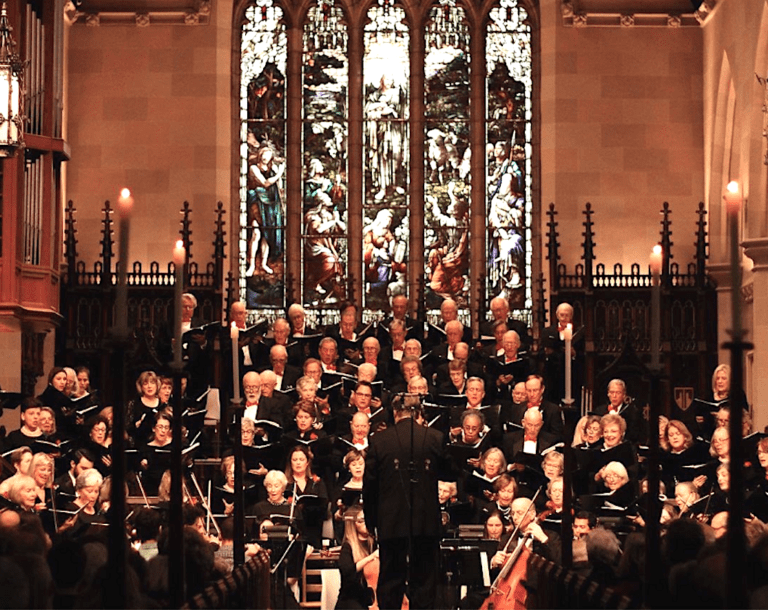
By Drew Williams
Isaiah 43:1-3a contains one of the most beautiful promises of God:
But now thus says the Lord,
He who created you, O Jacob,
He who formed you, O Israel:
“Fear not, for I have redeemed you;
I have called you by name, you are mine.
When you pass through the waters, I will be with you;
and through the rivers, they shall not overwhelm you;
when you walk through fire you shall not be burned,
and the flame shall not consume you.
For I am the Lord your God,
the Holy One of Israel, your Savior.
Within these verses is God’s gift of reassurance, His invitation and His promise. Let me attempt to unwrap this gift. It begins with the gift of reassurance.
1. The Gift of God’s Reassurance
Reassurance is the action of removing someone’s doubts or fears. The main point of the passage is to encourage us not to fear. But the word “reassurance” is a very specific word in that it tells us that we are being re-attached, re-rooted, re-established in a place where we have already known assurance. To be reattached is to come back to what you were once attached to.
What is the Lord’s reassurance here? What is He bringing us back to? I believe His word of reassurance to us is along the lines of, Do not fear. What I have done for you both in the past (all My actions of love and care) demonstrate My continuing, faithful, unchanging love and care of you both for today and tomorrow.
In verses 1-4 God argues like this: You should not fear because what I did for you in the past proves My love to you and My care for you. In Isaiah’s context, the declaration “I have redeemed you” calls to mind the Israelites’ freedom from Egyptian bondage. The Lord is reminding them here that He is the kinsman redeemer or avenger, the one who makes things right — pays debts, rescues and protects.
There is a richness in the redeeming love of God in all our pasts that is for our future in God. John Newton wrote, “…when we have been brought very low and helped, sorely wounded and healed, cast down and raised again, have given up all hope — and been suddenly snatched from danger, and placed in safety; and when these things have been repeated to us and in us a thousand times over, we begin to learn to trust simply to the word and power of God, beyond and against appearances…”
So how does this work practically? The Lord’s encouragement is to be intentional about bringing to mind and sharing together the stories of God’s goodness in our lives. In Joshua 3-4, God caused the Jordan River to stop flowing so the people of God could cross on dry ground into the Promised Land. God then instructed them, through Joshua, to gather twelve stones from the Jordan to set up as a memorial. One man from each tribe was selected to take a stone from the riverbed. Joshua set them up as a sign, as a remembrance, of what God accomplished for His people on that day.
God is so gracious to us. He knows that we are forgetful. So He gives us memorials.
What are some events that you can look back on as a pile of stones marking a defining moment for you — a moment when God showed His power in your life, when He was guiding you in a very clear way, when He answered a prayer or fulfilled a promise? The Psalmist wrote, “I will ponder all Your work and meditate on Your mighty deeds” (Psalm 77:12).
Remembering, in turn, will always call forth joy and gratitude for what God has done. David penned, “I will give thanks to the Lord with my whole heart; I will recount all of Your wonderful deeds.” (Psalm 9:1). And then let the joy of those memories overflow in your conversations with others.
In Joshua 4, we find this instruction specifically regarding children: “When your children ask their fathers in times to come, ‘What do these stones mean?’ then you shall let your children know, ‘Israel passed over this Jordan on dry ground.’” (Joshua 4:21-22).
Having assured us again of His faithfulness in all those moments when we have been brought very low and He has helped us up, when we have been wounded and He has healed us, when we were cast down and He raised us again, when we had given up all hope and He restored His hope in us, when we found ourselves suddenly snatched from danger and placed in safety, as we recall these things with thanksgiving and sense the assurance of His love wash over us, then the Lord offers us an invitation.
2. The Gift of God’s Invitation
The Lord says, “I have called you by name, you are mine.” I created you. I know you by name. I know you intimately. You are precious to me. You are honored. I love you.
Where is the invitation in there? The idea of being called by name is a reference to both creation and election. God chose His people, and by calling them by name He exercised His sovereignty over them. But there is something else! In the ancient Hebrew tradition, the name was closely associated with the person and his presence. Thus, to call on someone’s name was to seek his presence.
And here is the invitation! The God of the universe, our Father, the God of Abraham, the God of Isaac, and the God of Jacob, the one true God is seeking your presence. This is the longing of God that draws us into our longing for Him. David described it this way: “As the deer longs for streams of water, so I long for you, O God.” (Psalm 42:1, New Living Translation). Our longing for God comes only as a response to His longing for us.
So when we read in both the Old Testament and the New Testament, “Love the Lord your God with all your heart and with all your soul and with all your strength.”, we are being exhorted to love God like this because this is exactly how He loves us.
This invitation is all about God pursuing your presence. His invitation to you is both the honor of enjoying His presence while He enjoys being in your presence. So, learn to enjoy His presence together — in prayer, in silence, sitting in your favorite chair on the deck or in the backyard, while out for a walk. Lean into His invitation to spend time with you.
So, there is a reassurance and an invitation and finally a promise.
3. The Gift of God’s Promise
In the book of Daniel, Daniel’s three friends (Shadrach, Meshach and Abednego) are bound hand and foot and thrown into a blazing furnace. And then King Nebuchadnezzar (who has given these terrible orders) exclaims, “But I see four men unbound, walking in the midst of the fire, and they are not hurt; and the appearance of the fourth is like a son of the gods.” (Daniel 3:25). Amazed, he orders the men to come out. Within the fire the men walked free and out of the fire they walked completely unscathed. There has been a lot of debate around the precise identity of this fourth figure. Was it an angelic form? Was it the pre-incarnate Jesus Christ? We are left to make up our own minds.
The vital thing is that God fulfilled His promise to the three. It was the promise given to Moses. “I am the God of your father, the God of Abraham, the God of Isaac, and the God of Jacob. … I will certainly be with you.” (Exodus 3:6, 12). It is the same promise that Jesus gave to His disciples: “…and lo, I am with you always, even to the end of the age.” (Matthew 28:20). His promise is secure: “I will never leave you nor forsake you.” (Hebrews 13:5). We will all face our own furnace of one type or another. But God’s promise is to join us — and so make us fireproof.
How fireproof is this promise? Do we see the infinite lengths Jesus went to join us in the furnace? Tim Keller wrote, “When we remember that Jesus had been living in unimaginable glory for all eternity, we realize that His entire earthly life was, for Him, like walking in a furnace.” And when it came time for Jesus to enter the supreme furnace of affliction that was the Cross there was no one to walk through that furnace beside Him. Dr. Iain Duguid, a professor of Old Testament Studies, points out, “When the fire of God’s wrath against our sin, burned Him to the core and blazed unchecked over Him, He was entirely alone.” Why? Why would God be with these three Jewish exiles but not His only begotten Son? The answer is that on the Cross Jesus was suffering not only with us but for us. Jesus went through the fire of punishment that our sins deserve so that we could be free and know His presence now and eternally.
And the same mercy and love that He poured out for us on the Cross now distinguishes His living presence in the furnace of our lives. Again, His promise is secure: “I will never leave you nor forsake you.” At some point in our lives, we will all face what feels like a furnace of one type or another. Paul wrote, “In fact, everyone who wants to live a godly life in Christ Jesus will be persecuted…” (2 Timothy 3:12). God’s desire is always to strengthen us in remembrance, enfold us in His presence and make us fireproof!




